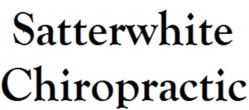Satterwhite Chiropractic Cares for Veterans and Locals Alike with Back Pain and Stress
Stress of life and stress of military life are taxing. Chiropractic care extends relieving care to both military and non-military folks correspondingly. New studies focused on the benefits of chiropractic for military veterans revealed benefits of chiropractic care to which Oxford chiropractic care patients can relate: improvement in pain, strength, and coping with pain. Satterwhite Chiropractic is the Oxford chiropractic pain and stress relief center!
STRESS AND PAIN
Veterans struggle with stress and pain. The VA System is working on addressing veterans’ needs. Medicine is forefront in the VA care system while many veterans are going outside that system for additional care. A national survey of veterans discovered that 52% used complementary and integrated health approaches to address their issues with pain and stress reduction/relaxation topping the list: 44% massage, 37% chiropractic, 34% mindfulness, 24% other meditation, and 25% yoga. 84% said they are interested in undertaking at least one of these options: massage, chiropractic, acupressure, reflexology, progressive relaxation, acupressure. They were much more likely to try these beyond the VA System. (1) Veterans are like you! They pursue Oxford chiropractic care outside the routine system at times, too!
HELPING VETERANS REGAIN THEIR STRENGTH
Veterans with back pain like other back pain sufferers find that their strength and quality of life decrease. Chiropractic care can frequently help. Veterans particularly suffer with post-traumatic stress disorder which complicates their pain management care. Chiropractic care within the VA system accounts for such overlying issues. Chiropractors in the VA System will want to carefully diagnose and coordinate care of PTSD veterans to be sure they are getting all the necessary care. (2) Your Oxford chiropractor considers each of our Oxford back pain patients’ other issues in the same way to maximize positive clinical outcomes.
IMPROVING STRENGTH IN LOW BACK PAIN SUFFERING VETERANS
One positive clinical outcome wanted by all back pain sufferers is to be able to do activities of daily living as they need and want. Back pain is notorious for interfering with daily activities. For veterans, lifting, endurance and balance are vital daily activities. Back pain suffering veterans were assigned to chiropractic care or a wait list for four weeks. The chiropractic patients improved their pulling strength by 5.08 kgs while the wait list group’s pull strength decreased by 7.43 kgs. Trunk muscle endurance, disability, pain intensity and fear avoidance behavior all got better with chiropractic care of active military personnel with low back pain. (3) Plus, after back surgery, some veterans will still experience pain and want some help. 90.3% of VA chiropractors reported seeing at least 1 post-back surgery fusion patient in the past month. (4) Chiropractic care for post-surgical continued pain is showing itself to be beneficial. Satterwhite Chiropractic uses such pain reducing, strength increasing care for Oxford back pain sufferers, too!
CONTACT Satterwhite Chiropractic
Listen to this PODCAST with Dr. C. Michael Dupriest on The Back Doctors Podcast with Dr. Michael Johnson as he describes beneficial and relieving chiropractic care integrating the Cox® Technic System of Spinal Pain Management as a chiropractor within the VA System.
Schedule a Oxford chiropractic visit with Satterwhite Chiropractic for your low back pain and any related stress that it brings with it. Together, we will find a treatment plan just for you.

